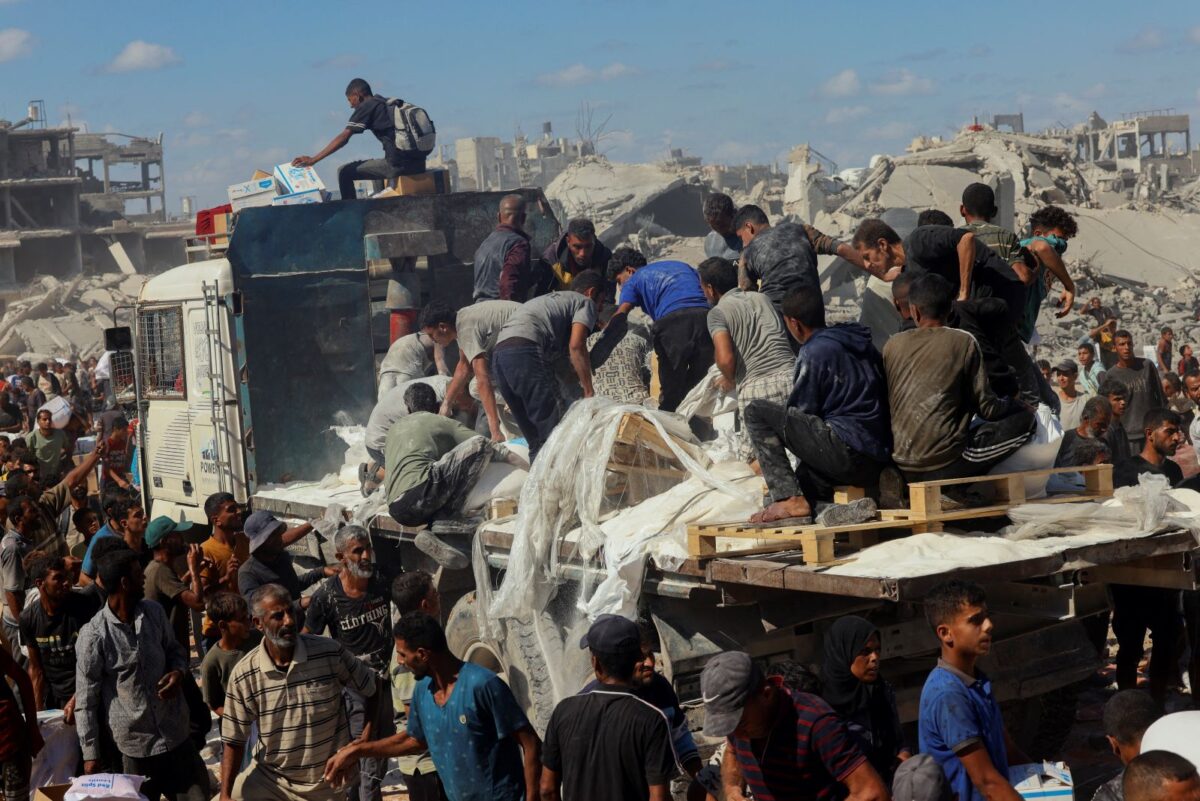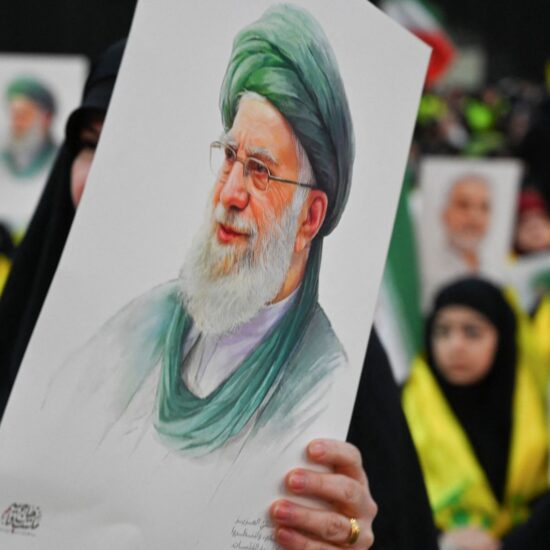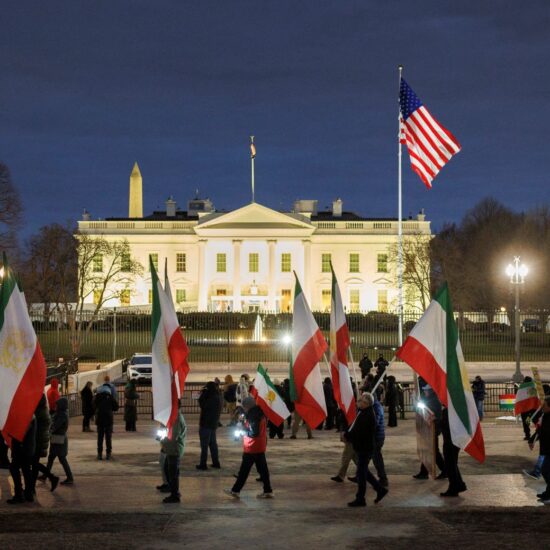
After the ceasefire agreement in Gaza, Israel appears to be turning its attention north, escalating tensions along the Lebanese border
After the ceasefire agreement was reached in Gaza last week, Israeli airstrikes hit southern Lebanon early Saturday, marking one of the most intense escalations since the start of the war. The strikes targeted six yards for bulldozers and excavators along the Msayleh–Zahrani road, killing one person, wounding several others, and destroying more than 300 heavy vehicles. The losses were estimated in the millions of dollars.
The Israeli army claimed the strikes targeted Hezbollah infrastructure allegedly used to store engineering equipment for rebuilding military positions. But the timing of the attack—coming just days after the Gaza truce—was seen by many in Lebanon as a sign that the country remains within Israel’s line of pressure despite de-escalation efforts elsewhere.
Lebanese officials condemned the strikes as a violation of sovereignty and a breach of UN Security Council Resolution 1701. President Joseph Aoun questioned why the truce model applied in Gaza could not be extended to Lebanon, while Parliament Speaker Nabih Berri said the assault “was not only on Msayleh and its residents, but on all of Lebanon.”
Prime Minister Nawaf Salam, currently abroad, followed up on the developments through ministers Ahmad al-Hajjar, Mohammed Haidar, Fayez Rasamny, and Yassine Jaber, who coordinated with South Lebanon Council head Hashem Haidar and the Higher Relief Commission to assess damages. The Ministers of Interior, Labor, and Public Works also visited the targeted sites, reaffirming that the government stands behind the army as the sole guarantor of Lebanon’s sovereignty and stability.
In Lebanon
New Heist: Local media reported that an officer and a member of the Mount Lebanon Intelligence Bureau were injured during a pursuit of wanted suspects on the Damour–Saadiyat highway. The patrol came under ambush, resulting in the two injuries, whose conditions were later described as stable. Authorities seized the vehicle used by the suspect, who managed to escape and remains at large.
UNIFIL Again: UNIFIL reported that an Israeli drone dropped a bomb near one of its positions in the southern town of Kfarkela shortly before noon yesterday, lightly injuring a peacekeeper who received first aid. The mission said peacekeepers had earlier observed two drones flying in the area and noted that this was the second such incident this month. UNIFIL called the attack a serious violation of Resolution 1701 and urged Israel to halt all actions endangering its personnel.
Urgent Complaint: Prime Minister Dr. Nawaf Salam contacted Foreign Minister Ambassador Youssef Raji, instructing him to file an urgent complaint to the UN Security Council over the recent Israeli attack on civilian and commercial facilities in Msayleh. The strike, he said, constitutes a blatant violation of Resolution 1701 and the ceasefire arrangements established last November.
Syria & Lebanon: Syria’s foreign minister met with senior Lebanese officials in Beirut as the two countries seek to reset relations after decades of strained ties shaped by mutual interference during their civil wars and Syria’s long presence in Lebanon. Foreign Minister Asaad al-Shaibani said Friday that his visit—the first to Lebanon by a senior figure from Syria’s new government—signaled “a new Syrian approach towards Lebanon” aimed at “overcoming the obstacles of the past,” referencing decades of Syrian influence over Lebanese affairs under the al-Assad family.
In The Region
Hostages Release: The Israeli military reported that a Red Cross convoy is en route to collect a second group of Israeli hostages being released by Hamas under Monday’s Gaza ceasefire agreement. According to an army statement, the handover will occur at an additional location in southern Gaza, where several hostages will be transferred to the Red Cross.
Gaza-Egypt Border: The European Union announced it will restart its civilian mission to monitor the Rafah border crossing between Gaza and Egypt on Wednesday, supporting the ceasefire agreement, the bloc’s top diplomat said Monday. EU foreign policy chief Kaja Kallas tweeted that “the EU stands ready to do its part” following the release of the first group of Israeli hostages by Hamas under the U.S.-brokered deal, adding that the mission “can play an important role in supporting the ceasefire.”
New Relationships?: Syria’s security is closely tied to Turkey’s, Foreign Minister Hakan Fidan said Sunday, pledging Ankara’s continued support for Syrians. Following a meeting in Ankara with Turkish and Syrian officials, Fidan said both sides agreed to strengthen cooperation to safeguard Syria’s achievements and review the strategic dimensions of their relationship.
Saleh Jaafarawi: Palestinian journalist Saleh Aljafarawi, 28, was killed in clashes in Gaza City just days after a ceasefire between Israel and Hamas. Media sources reported that he was shot by an “armed militia” while reporting in the Sabra neighborhood. A verified footage showed him in a “press” flak jacket on a truck; he had been missing since Sunday. Clashes reportedly involved Hamas forces and the Doghmush clan, though this is unconfirmed. Authorities warn that Gaza’s security remains unstable despite the ceasefire.
What We Are Reading
Towards a New Diplomatic Chapter Between Lebanon and Syria: Journalist Valeria Rando wrote about Syrian Foreign Minister Asaad Shaibani’s visit to Beirut on October 10, the first by a senior Syrian official since 2008, aimed at restoring diplomatic ties and addressing issues like detained Syrians, border security, and refugees. During the visit, Syria announced the suspension of the Lebanese-Syrian Higher Council, limiting communication to official channels. Both sides emphasized a new phase of mutual respect and a shift from security-focused relations to political and economic cooperation.
Lebanon Is Moving Against Nature — and Against Its Own Interest: Now’s Managing Editor Makram Rabbah wrote that Lebanon’s issue is political failure, not law: the state’s monopoly on arms exists in principle but is unenforced. Leadership requires concrete steps—enforcing the constitution, assigning responsibilities, and using international support—while symbolic incidents like Raoucheh expose how challenges to state authority risk normalizing defiance.
October 7 comes around again – How has this day reshaped Lebanon?: Journalist Rodayna Raydan wrote that Lebanon stands at a crossroads. Israeli attacks after October 7 have weakened Hezbollah, and while the new government seeks stability, Israeli pressures and internal divisions persist. Though the government aims to disarm the group, Hezbollah insists on retaining its arms. The Lebanese armed forces have begun reclaiming authority in the south, but rapid moves risk sparking unrest in Lebanon’s deeply sectarian society.
Trump’s Middle East Peace Gamble and Lebanon’s Next War: Political psychologist Ramzi Abu Ismail wrote that two years after the 2023–24 Israel-Hezbollah war, Lebanon faces a dangerous crossroads. The conflict left Hezbollah armed but weakened, with financial strain, fragmented alliances, and a shrinking support base. While the region moves on—Hamas contained, Iran pressured, and the U.S. seeing an opportunity to enforce a broader “peace order”—Hezbollah clings to its posture of resistance, misjudging its vulnerability. Abu Ismail warns that the group’s deterrence no longer holds, turning it from Lebanon’s shield into a liability, and making another conflict increasingly likely.








